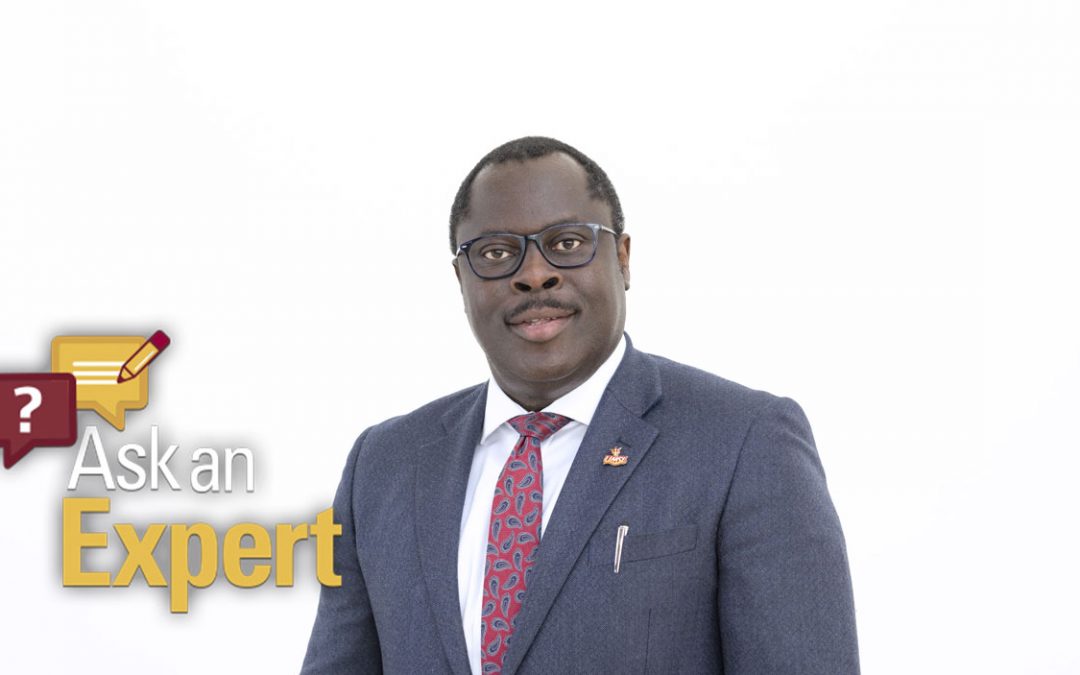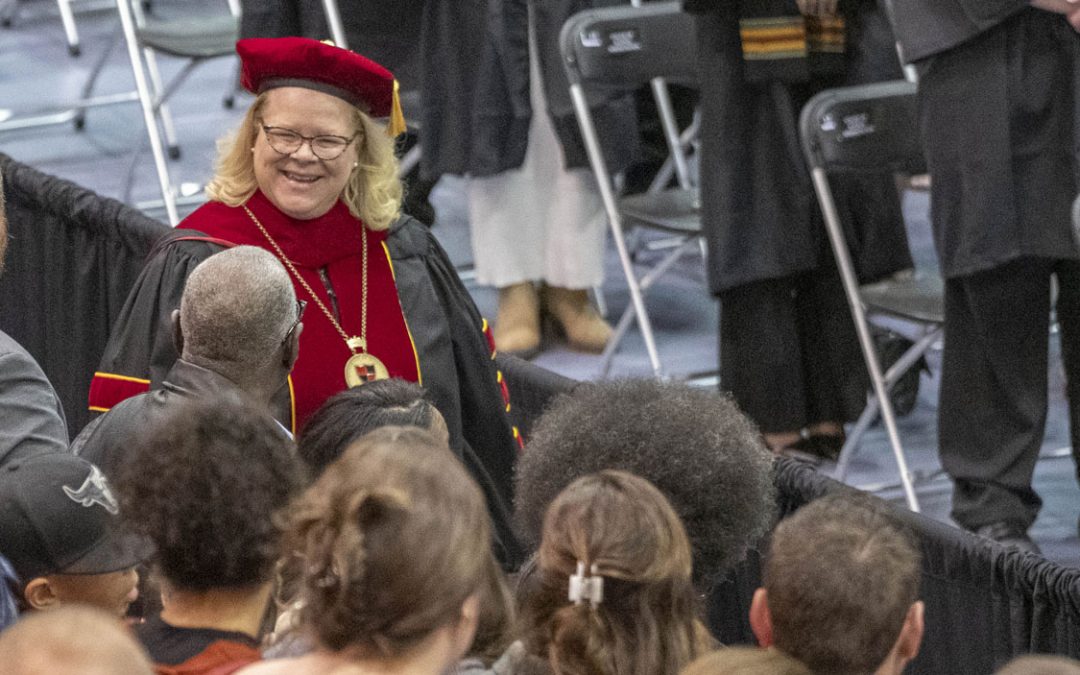
Professor Lea-Rachel Kosnik researches environmental economics and energy economics and has authored papers published in such journals as Economics of Disasters and Climate Change, Journal of Benefit Cost Analysis, Climatic Change and the International Review of Law and Economics. (Submitted photo)
In his first two weeks in office, President Joe Biden has take a series of actions aimed at combatting climate change, including rejoining the Paris Agreement on climate, revoking the permit for the Keystone XL pipeline, freezing new oil and gas leasing on federal lands and setting an agenda to reduce greenhouse gases.
He’s also tried to frame the issue in economic terms, suggesting steps to address climate change would create more jobs and spur economic recovery.
Lea-Rachel Kosnik is a professor of economics at the University of Missouri–St. Louis who specializes in environmental economics. In the latest issue of its Ask an Expert Series, UMSL Daily spoke to Kosnik about the connection between climate and the economy and the role of government, as well as other actors, in driving the transition to cleaner and more renewable forms of energy.
Why is climate change an economic issue, and why should we think of it that way?
Production and distribution is at the heart of economics, and it all requires energy. Energy use, in most forms we have, involves fossil fuels, which contributes to emissions and contributes to climate change. So it’s very much an economic issue.
Economics has often been held up as a reason preventing more significant actions on climate change because of the expense required. What do you think of that framing?
I think the problem with that way of thinking is it focuses only on the costs. But costs lead to benefits. That’s sort of the point. What really needs to be the focus is, “What’s the net cost?” Or actually, “What’s probably the net benefit?” I do understand that there are costs. On some level, that’s why I am an economist, and I like economics because we’re very pragmatic. We face reality – the way things are actually done and produced and distributed. But we look at the whole picture, so we don’t focus just on the costs or sometimes, like politicians, just the benefits. Economics is very much about what’s happening net. If you look that way, addressing climate change should have long-run net benefits. That’s the point. Nobody’s doing this just to be sort of masochistic and to say, “Let’s just throw a bunch of money in a hole.” The whole point is that there will be long-run net benefits. So you can worry about the cost, and I get that, and we should try to minimize the cost. If you can minimize the cost, you can do more and have more programs to help address things. But what really needs to be the focus is the benefits that come from it.
The Biden administration has expressed a desire to take actions on climate change and is talking about doing things more boldly than even the Obama administration was talking about five or six years ago. How important is government action?
Government’s important. I do feel like there’s a role for government in the sense that government should coordinate because addressing climate change is a coordination issue. Coordinate, lead and cheerlead – those are my three words for the role of government. They definitely need to help coordinate responses. They need to also lead and say that this is an issue and it needs to be addressed. And I think on some level, that’s what the Biden administration in his few short weeks, has really been trying to do – lead with a message that this is where we’re going. They need to cheerlead, too.
The other question was, “Why do they seem to be more serious than even the Obama administration?” This may be because the Biden administration is also reflecting. Good politicians both lead and reflect. I think public opinion, especially among our youth, is more and more toward doing something about climate change. So it makes perfect sense from a political, strategic perspective for the administration to want to worry more about climate change. I do think that’s where the youth and public opinion is going.
How costly is this transition going to be? Obviously, there are benefits to that cost, but how expensive is it to change over an economy to a new way of supplying energy?
Well, I don’t have a number for you. I hate to harp and say this again, but I think just saying, “What are the costs?” or focusing on only the cost is not a good way of thinking about things. It’s more nuanced than that. One, there’s the benefits, which I already said. But the other thing is, you can break down looking at costs in a more informative manner. You can think of short-run versus long-run costs, for example. Yes, some of the short-run costs may be a little more inflexible, maybe a little bit more like a shock to the system. So maybe we’re a little more worried about the short-run ones, and the long one long-run costs might not actually be that bad and might lead to more opportunity.
There’s also more nuance when you’re asking about costs in terms of who is paying these costs. It’s not going to be homogenous across the entire country. There are going to be some groups that might be affected more than others. Just as with COVID, some businesses did well while others have suffered. Things in the economy are never uniform. In terms of the costs, they’re going to be harder on some groups and less on other groups. If you want to know a little bit more about what might happen to an industry or what might happen to an age demographic, those are a little bit more interesting questions than just, what are the costs? They’re not going to be the same for everybody. They’re going to change over time. But net, I really do believe they are going to be worth it in terms of providing more benefits.
While the costs of this transition continues to be a central part of the debate about climate change action, it doesn’t seem like there’s as much consideration of the costs of inaction.
One good thing to keep in mind is that, even though there are going to be industries and regions that bear heavier costs, everyone has a benefit. The reduction, not just in emissions but the reduction in wildfires and severe floods and all of the negative effects to the environment, benefits everyone. There’s nowhere that will only bear costs and isn’t going to simultaneously benefit from climate change action.
I do realize the Biden administration and other groups – and maybe especially economists – will say, “Yes, there are costs, but you can generate new industries, renewable energy industries and jobs.” That’s fine, too, but I think there is a larger point that shouldn’t be forgotten that there are going to be wider climate change benefits. There’s going to be less destruction from wildfires and floods, and that really does literally benefit everybody.
What would an economist say to the people and communities who are really feeling this transition the most?
There’s always a theoretical answer to this, right? It’s that this is what the tax system is for. You should let development happen, and you should let new programs and new initiatives like dealing with climate change happen. You don’t deny that there are costs to certain groups. What you do is you tax the benefits of the groups that do better and the industries that do generate profits and new jobs from this. Then you redistribute it in ways to help the groups that are harder hit – maybe the 55-year-old coal miner who can’t see himself going back and getting a new job and a new education. Maybe you redistribute the profits back to him in some way. That’s the theoretical answer, and it’s a good one. It’s just that what it then does, from an economist’s perspective, is it pushes the issue to the politicians to figure out those mechanisms. Reading the Biden administration’s statements – and they haven’t stated everything they’re going to do yet – they do at least seem to be aware of the need for programs for the communities and the type of people that will be disproportionately negatively affected by climate change initiatives. What exactly they develop in terms of new jobs and tax breaks, we don’t yet know.
You mentioned that government could only do so much. How would you weight the role of businesses in addressing climate change?
I don’t think one’s more important than the other. I would put it as there are three groups – government, business and people. We all have a role to play. I guess you could say that business is more important in the sense that they produce the emissions while producing things, but I don’t like that characterization. We all have a role to play. Business clearly has a role to play by changing their production techniques. Government has their job to do in leading and pushing action, as the Biden administration is doing. We all have a job to do to as well, pushing our politicians forward and trying to change our own behavior, however marginally we can.
General Motors recently announced a plan to shift production so its entire fleet of vehicles would be electric by 2035. Are decisions like that a reflection of a company trying to take a lead in dealing with climate change or one responding to where consumer preferences are already headed?
I would say competition is what drives things. If you go way back to 2001 when the EPA announced tough requirements on emissions of diesel trucks – I wrote a paper on this a few years after it happened – people in the truck industry responded by saying, “We can’t do this.” There were fewer than 10 truck manufacturers, and they all knew each other, and there was a trade association. They all, as a group said, “We can’t do this.” But then there was one truck company that finally cracked emissions reduction from a technological standpoint. What that company did was it started putting out ads saying, “We care about your grandchildren, and we care about the future.” Maybe they did, but probably more importantly, they had beat out the competition. They were the first company that could satisfy the requirements, so they were going steal all the market share.
Another way to view GM’s announcement, therefore, is that they are making advancements. They have been working on developing electric cars. What we don’t know is if they actually have advanced so far that they’re now pushing zero emissions because they can steal all the market share. But I suspect it’s more about profits and market share and competition than responding to consumers. I realize consumer sentiment feeds into competition, but I think it feeds into it less than what the other players are doing.
Why did you want to study environmental issues as an economist?
I’ve noticed in my profession of environmental economics that there are economists who picked environmentalism as a field, and then there are more environmentalists who were good at math and chose economics because they liked the tools. I was more of the first group. I was an economics major in college and was doing the honors program, which meant I had to write a thesis and do some research. I didn’t know what to write about, but there was a professor who was a really good mentor. He pointed me to some data to study water issues overseas, and I started on this path of water conservation and environmentalism. I’m obviously concerned about environmental issues, but what really gave me the push to go into this field was a good mentor. Over the years, it’s become a discipline where things are happening. There have been times where that’s waxed and waned, but there’s been an opportunity to have an impact on the world and on policy. That’s been very exciting to me.














